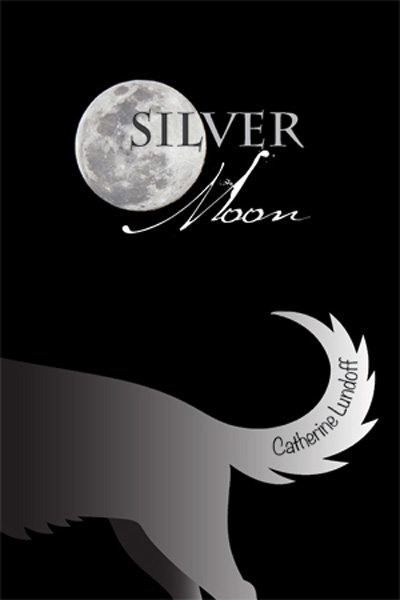
When a novel begins with the line, “Her first hot flash came on suddenly and unexpectedly, super-heating Becca Thornton’s body from head to toe until she was drenched with sweat,” you know you’re about to read something you’ve never read before. In this case it’s the first line of Catherine Lundoff’s Silver Moon and our first encounter with Becca Thornton, a menopausal woman discovering that the ‘change of life’ has changed her into a werewolf. It’s a really novel take on the werewolf legend that so often is used as a metaphor for menstruation and/or the ‘animal’ nature of us dirty women. It’s also something you rarely see in romance: a lesbian romance featuring two women who aren’t twenty-somethings looking for love. Also, they’re kickass werewolves. Also also, it’s amazing to read about a strong, super-powered woman who isn’t a twenty-something woman with washboard abs, violet eyes and perfect hair.
It’s also refreshing to read polished, professional prose with a well-edited story. Although the pacing isn’t perfect, Silver Moon far exceeded my expectations in terms of plot and handling of genre elements. I’ve gotten so used to ‘lesbian novels’ that are not only poorly edited, but in desperate need of a proofreader that reading Silver Moonwas an enormous relief. That isn’t to say that this novel is perfect or the werewolf/genre equivalent of a Sarah Waters novel, but it was a treat to read and I didn’t notice a single typo or malaprop. It shouldn’t come as any surprise to those who’ve read and loved Dayna Ingram’s zombie thriller Eat Your Heart Out, that Silver Moon was also published by Lethe Press. I just hope they continue to publish novels with lesbian protagonists. They’re doing it right.
Okay, so that’s the pros, but there are cons. The first is the ‘reluctant hero’ thing that got old with Buffy the Vampire Slayer. I realize that many of us would be a bit put off by turning into a werewolf every month, but the idea that an aging, menopausal woman who’s just been dumped on repeatedly by life would find gaining a pack and superpowers instead of osteoporosis such a terrible hardship got a bit old. I think Becca’s misgivings could have been handled quickly rather than stretching almost half the book.
The overall story arc revolves around Becca’s introduction to the pack who turn out to be the historic protectors of the town and valley (Wolf Valley) she lives in. All of the pack’s members are post-menopausal women, which is kind of cool, but the way the pack (mis)handles newest member Becca is pretty uncool. Becca is immediately tossed with little to no preparation into a confrontation with a group of werewolf hunters, which she screws up royally, endangering her pack mates and nearly getting the love interest killed.
I’m also really tired of the ‘alpha’ dog hierarchy (that has been pretty much debunked by researchers who specialize in studies of wolves) that has infected every werewolf story I’ve ever read. Could someone please write a werewolf story without this trope? To be fair, Lundoff’s Becca displays some pretty rogue behavior throughout the novel. Becca constantly makes decisions (including lying and withholding information) and takes actions that could endanger the entire pack without any input from her alpha or any other pack members. Lundoff explains this by having the pack’s alpha away quite a bit taking care of her sick mother, but it feels a bit staged since it leaves beta Erin, who happens to be our love interest for Becca, in charge and unwilling or simply unable to curb Becca’s rogue tendencies. This weird tension — is there an alpha pack hierarchy, obeyed by the pack or isn’t there? Is Becca a doormat for her ex-husband and everyone else or is she the take charge woman — persists through the story.
Despite the problems (seriously, what book doesn’t have issues?), this is a highly rewarding story and a joy to read. Just a warning for those who prefer their lesbian novels to be weighted toward the romance rather than the story, this is not a ‘romance.’ Becca slowly admits to her developing attraction to Erin after telling herself it’s just some side effect of menopause and/or the werewolf thing. It takes a long time and I think Lundoff could have actually done a bit more with the romance, particularly in explaining Erin’s behavior, but that’s easier said than done. This seems to be a common issue for paranormal and/or SF/F lesbian novels: getting the balance of romance and plot right. I’m not sure this ‘balance’ is possible since everyone’s preference on this spectrum is probably different. This one just leans toward the paranormal plot rather than the romantic one. Still, lesbian main characters who are werewolves in love with other lesbian werewolves FTW!!

